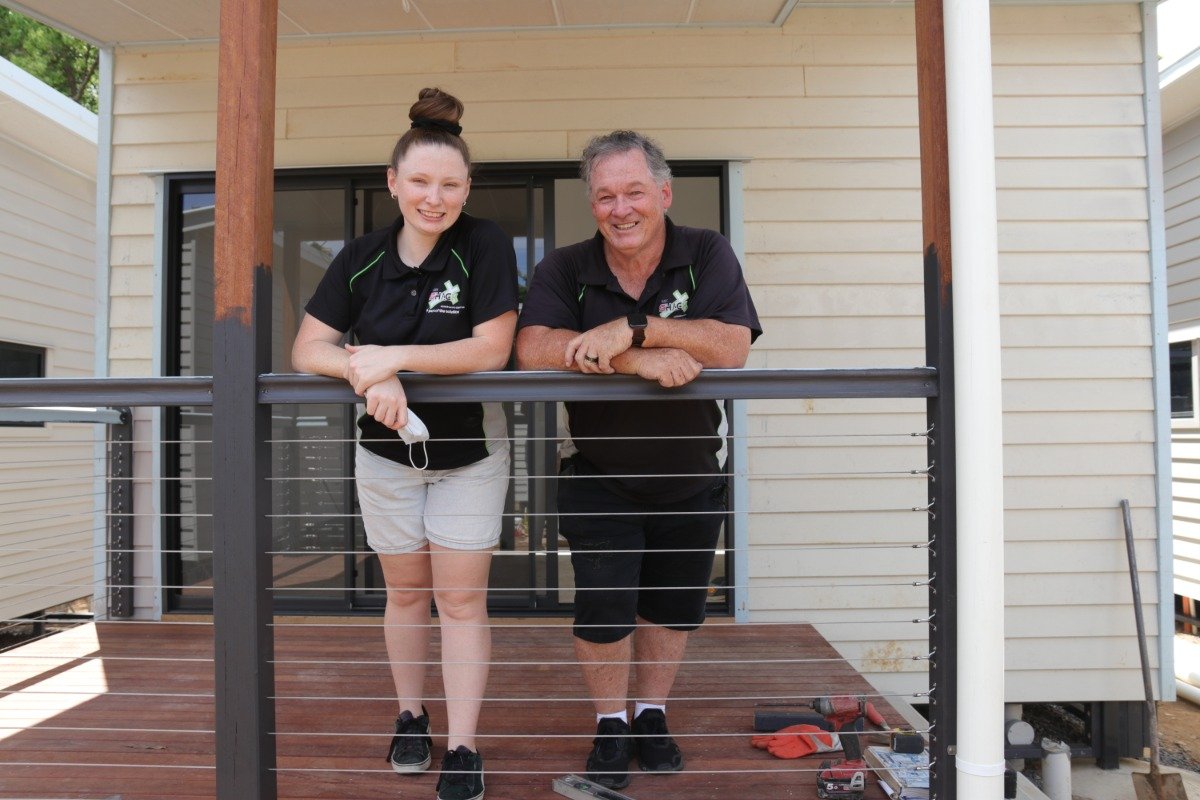Housing project aims to be a part of a sustainable solution for homeless men
It’s about building lives and building futures’
A tiny house project in Nambour aims to do more than just get homeless men off the streets.
The Shack’s Pastor Dale Dowler said the landmark initiative’s goal was to encourage the residents to ‘graduate’ and live meaningful lives.
“This is not just a roof over your head for a while,” said Mr Dowler. “It’s about building lives and building futures. We’re going to provide a program to encourage personal and social growth and responsibility.
“We’ve seen the revolving door, over 20 years, of people coming into accommodation with no life skills programs or support around them and they just exist ... and then they go back to their old life. That’s not what this is about. We want them to be able to sustain their improvement once they leave.”
Mr Dowler said men would have to comply with in house principles set down during the application interviews. “No drugs or alcohol. No sleepovers or anti-social behaviours will be tolerated,” he said. “
The Gen 1 Men’s Housing Project consists of seven small units on a regular sized housing block that will house five men and a caretaker. The seventh house will be used as a common meeting space.
Residents will have body corporate meetings and rules to comply with and the men will abide by a roster to maintain the property which is gated and coded.
“The application process will be made through The Shack, and we’ve been here 20 years so we know who’s going to be able to cut it,” he said.
The project is experimental by nature. But, looking ahead, Mr Dowler, who this year received an Order of Australia medal for his charity work, hoped similar projects might be copied and rolled out by councils and charities around the country.
“It’s a new thing. It’s a model that will evolve as we learn.”
The Shack received a $500,000 federal government grant in 2019 and the land was donated.
Pastor Dowler said the Gen One project represented a small win for a region that does not have specific housing for men.
While it will hardly put a dent in the area’s housing shortage it will have a huge impact on the lives of men and their families.
“It’s seven units on a normal sized block so it will be a great model for what can be done in the future. This cost structure means the men will pay undermarket rent.”
A full-time caretaker would support the residents and negotiate the waters to community living.
Pastor Dowler hopes to have the first residents in by mid to late January. The units have been designed to accommodate children if the residence have shared custody of their children, but this too will be discussed at the application interview.
“It will be a bit tight, space wise, but it’s better than not having visits at all because you’re living rough,” he said.
He expects residents to rotate through the program in about 6-12 months. “It takes about a year for most people to be able to live a normal life. Their body, soul and spirit have to be brought back into order. Particularly if you have long term life issues.
Pastor Dale Dowler with his daughter Imogene on the site of The Gen 1 Mens Housing Project Nambour.

